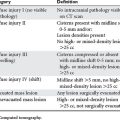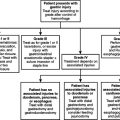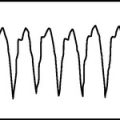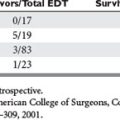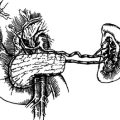CHAPTER 105 DEATH FROM TRAUMA—MANAGEMENT OF GRIEF AND BEREAVEMENT AND THE ROLE OF THE SURGEON
Death from trauma is a tragic event, often affecting young and previously healthy people. It is rarely peaceful or dignified. Traumatic sudden death leaves in its wake confused, disoriented, angry, sad, and overwhelmed survivors. Their reactions separate hem from life, from reality, and sometimes from caring about themselves. This is grief. When death occurs from sudden, unexpected events such as car crashes, suicide, or murder, grief reactions are more severe, exaggerated, and complicated. The griever’s ability to use adaptive coping mechanisms is limited.
GRIEF
Bereavement refers to the objective situation of having lost someone significant to death. Throughout their lives people have to face the death of parents, siblings, partners, friends, or even their own children. Bereavement is associated with intense distress for most people. This distress is grief, defined as a primarily emotional reaction to the loss of a loved one. It includes diverse psychological and physical manifestations (Table 1).
| Affective | Behavioral |
|---|---|
| Despair | Agitation |
| Anxiety | Fatigue |
| Guilt | Crying |
| Anger | Social withdrawal |
| Hostility | |
| Loneliness | |
| Cognitive | Physiological |
| Decreased self-esteem | Anorexia |
| Preoccupation with image of deceased | Sleep disturbances |
| Helplessness | Energy loss and exhaustion |
| Hopelessness | Somatic complaints |
| Self-blame | Susceptibility to illness/disease |
| Problems with concentration |
TRAUMATIC GRIEF
 The assumptive world of the mourner is violently shattered (the world as orderly, predictable, and meaningful), and causes intense reactions of fear, anxiety, and loss of control.
The assumptive world of the mourner is violently shattered (the world as orderly, predictable, and meaningful), and causes intense reactions of fear, anxiety, and loss of control. The mourner obsessively reconstructs events in an effort to both comprehend the death and prepare for it in retrospect.
The mourner obsessively reconstructs events in an effort to both comprehend the death and prepare for it in retrospect. The mourner experiences a profound loss of security and confidence in the world and increasing anxiety.
The mourner experiences a profound loss of security and confidence in the world and increasing anxiety.GRIEVING ACROSS THE LIFE SPAN
Numerous authors have defined “tasks of mourning” as activities that facilitate the resolution of significant loss. Adults and children experience grief after a loss, but the manifestations are developmentally determined (Table 2). It is important to recognize the different ways that children express grief; the age of the child is an important determinant and should be taken into account when information is shared and support provided.
| Adult’s Tasks of Mourning | Child’s Tasks of Mourning |
|---|---|
| Accept the reality of the loss. | Understand that someone has died. |
| Experience the pain or emotional aspects of the loss. | Face the psychological pain of the loss. |
| Cope with periodic resurgence of pain. | |
| Adjust to an environment in which the deceased is missing. | Invest in new relationships. |
| Develop a new sense of identity that includes experience of the loss. | |
| Emotionally relocate the deceased (this relocation process still allows for continuing bonds to the deceased). | Reevaluate the relationship to the person who has died. |
| Return to age-appropriate developmental tasks. |
MANAGEMENT OF ACUTE GRIEF AFTER TRAUMATIC DEATH
Communication of bad news or death of the patient to surviving family members is one of the most difficult tasks of the trauma surgeon. Research has demonstrated that the manner in which this is done is long remembered by families, and will affect their lifelong bereavement. However, several studies have revealed some simple, yet important skills for compassionate and effective communication in this setting. First, create an appropriate setting for delivering the news: it should be private, quiet, and secure. Prepare yourself as to the identity of the family members and their relationship to the patient. Do not assume that family members already know their loved one has died, even if they have witnessed the event. Your news will come as a shock, so for this reason it is helpful to give a warning shot: “I am afraid I have bad news.” Then follow with a clear, direct statement about the death of the patient. Avoid vague euphemisms such as “passed away,” “passed on,” or “we lost him”; instead, use the word “died” or “dead.” Elaborate explanations of medical details at this time are confusing; time is needed for the news to sink in first. Listen and provide support by acknowledging the family’s emotions. Then allow time for questions if they arise. Reassure family members that they can see and spend time with the deceased, and provide a plan for follow-up support and questions. Family-support personnel, social workers, and pastoral caregivers can and should be called in during this process (Table 3).
|
Include communication with the family and bereavement support in routine trauma care after death of the patient.
|
Buckman R. How to Break Bad News: A Guide for Health Professionals. Baltimore: Johns Hopkins University Press, 1992.
Iverson K. Grave Words: Notifying Survivors about Sudden, Unexpected Deaths. Tucson, AZ: Galen Press, 1999.
Jurkovich G, Pierce B, Pananen L, Rivara F. Giving bad news: the family perspective. J Trauma. 2000;48:865-873.
Mosenthal A, Murphy P. Trauma care and palliative care: time to integrate the two? J Am Coll Surg. 2003;197:509-516.
Murphy P, Price D. Dying and grieving in the inner city. In: Doka K, Davidson J, editors. Living with Grief: Who We Are, How We Grieve. Washington, DC: Hospice Foundation of America, 1998. Philadelphia, Brunner/Mazel
Oliver RC, Sturtevant JP, Scheetz JP, et al. Beneficial effects of a hospital bereavement intervention program after traumatic childhood death. J Trauma. 2001;50:440-448.
Rando T. Treatment of Complicated Mourning. Champaign, IL: Research Press, 1993.
Redmond L. Surviving When Someone You Love Was Murdered. Clearwater FL: Psychological and Educational Services, 1990.
Stroebe M, Hansson R, Stroebe W, Schut H. Handbook of Bereavement Research. Washington DC: American Psychological Association, 2001.












